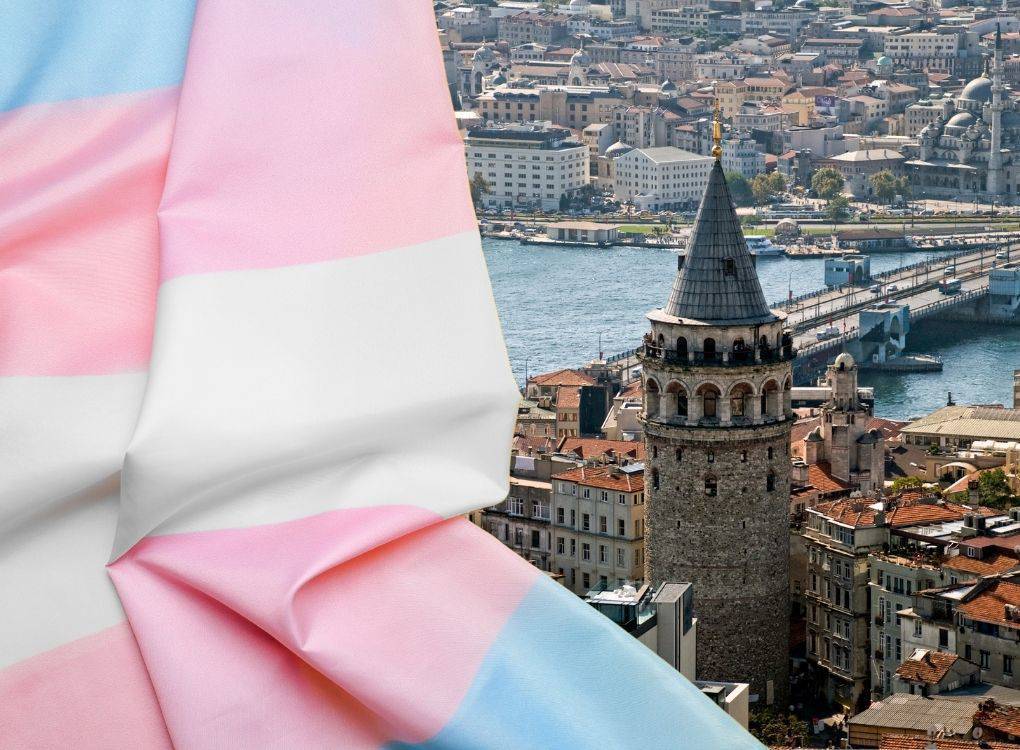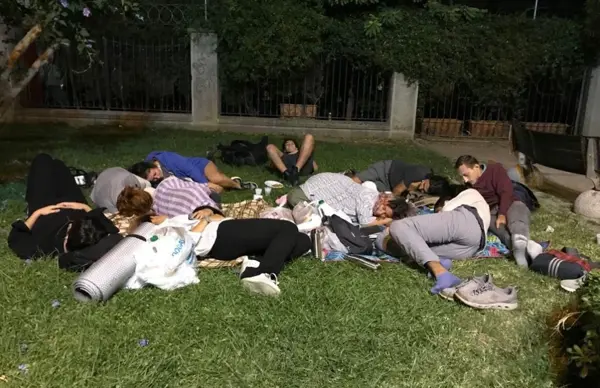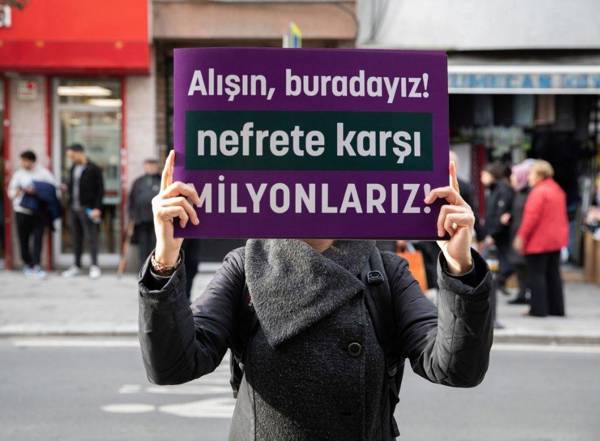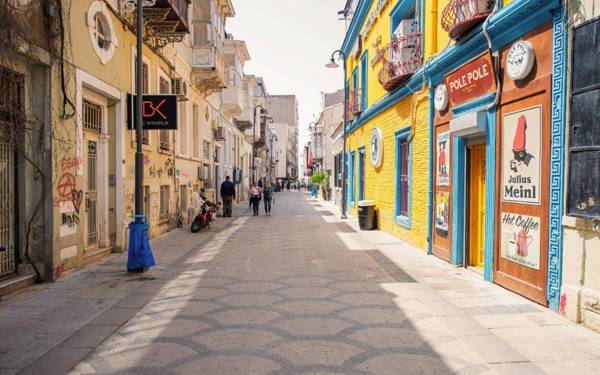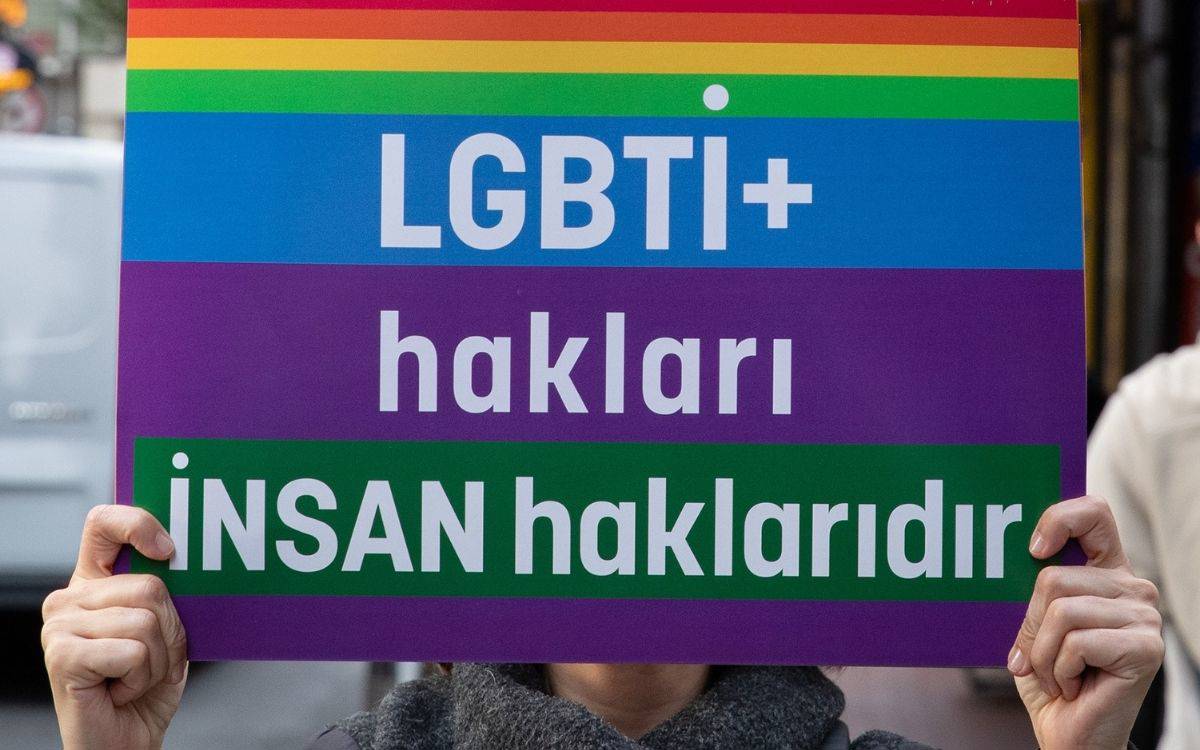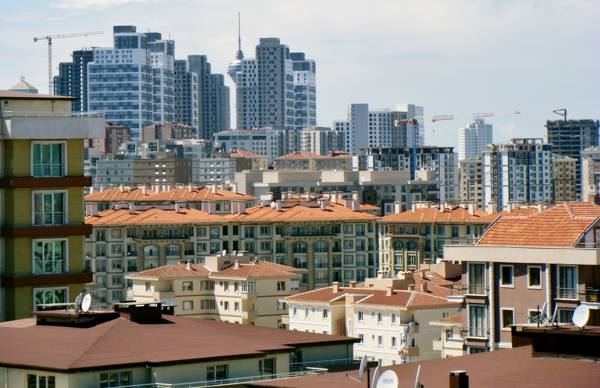Transgender people are being affected disproportionately by the ongoing housing crisis in Turkey, which has seen one of the highest increases in home and rent prices globally.
With the lifting of the 25% rent increase cap at the start of July, many renters have been forced to move, and finding a home has become even more challenging for trans people, who face transphobia in addition to economic hardships.
Double standards in rental practices, transphobic attitudes from landlords, building residents, and neighborhoods, and the difficulty in pursuing legal recourse, all contribute to the multifaceted housing struggles faced by transgender individuals, according to LGBTI+ activists and rights defenders interviewed by bianet.
According to trans activist Gök Akyel, the situaton faced by the trans community reflects the LGBTI+phobia in society:
Trans people and other LGBTI+s are among the marginalized minority groups whose rights to life, health, education, social security, and housing are violated. They face poverty and marginalization as a result of the economic-political consequences of hate.
Akyel notes that many trans people, unable to afford rent, are often forced to return to family homes, which may not always be safe.
For some, returning to family is not an option at all. Model and LGBTI+ rights advocate İris Mozalar says, "Since we cannot live with our families, we need places where we can feel more comfortable and safe, but we can't afford those homes. Finding an LGBTI+ friendly landlord or neighborhood is already very difficult."
Homelessness among trans people
The shrinking pool of affordable housing increases the risk of homelessness for trans people. Elif Topçu from the May 17 Association (17 Mayıs Derneği) points out that many trans people have been forced out of their homes due to rising rents and are now living in insecure places like streets and parks in various cities across Turkey.
Atalay Göçer, general coordinator of the Cultural Research Center for Peace (BAKAD), an NGO based in the Kurdish-populated city of Diyarbakır, notes that the housing issues faced by LGBTI+s became more visible after the devastating earthquakes on February 6, 2023. BAKAD’s report indicates that many trans people could not access temporary shelters, and those who did often could not receive necessary health and safety services.
Mozalar emphasizes the difficulty for trans people in finding stable, well-paying jobs, especially in cities like İstanbul where rents can be three to four times the minimum wage. Elif Topçu adds that as a result, trans people often have to live in less secure, more remote areas of cities.
Activists and associations speaking to bianet report that landlords often charge trans renters significantly higher rents than others. Trans individuals also face demands for double deposits and encounter discrimination, hostility, and various forms of violence from neighborhood communities.
Topçu reports a high number of trans people being forced out of their apartments through collective petitions by other residents.
“I was asked to prove that I wasn’t a sex worker”
Göçer adds that trans women, in particular, are often assumed to be sex workers by landlords, making it harder for them to rent homes. Even though sex work is not a crime under Turkish law, trans individuals involved in sex work face fines under different articles of the Misdemeanors Law, further complicating their ability to rent homes.
Mozalar shares her experiences and the difficulties she faced while trying to rent a home:
When I tried to rent an apartment in Kurtuluş, the landlord didn’t want me. The reason was that they had talked to the apartment residents, and they didn’t want me there. Even though I had a secure job at the time and offered to show my insurance documents and employee ID, the landlord insisted on verifying my employment by calling my workplace.
“I was studying at the time, but because the landlord had assigned sex work to me in their head, they wanted me to prove that I wasn’t. Despite having my student ID, employee ID, and insurance documents, they still wanted to call my workplace for verification. Eventually, they came up with an excuse and said they didn’t want me.
Regarding the 25% rent cap, which had been in force for two years until this month, Mozalar acknowledges that although the cap was not always enforced and was a subject of controversy, it at least provided some legal basis. Mozalar believes landlords saw trans women as weaker and more vulnerable, thinking the laws wouldn’t protect them and easily disregarding the limit.
Trans activist Gök Akyel argues that the removal of this cap has given already discriminatory landlords an excuse to evict trans individuals by citing high rental rates.
Insufficient legal remedies
Many trans people do not pursue legal remedies for housing discrimination due to a lack of confidence in these methods yielding results. Akyel notes that very few people seek legal action, and they have yet to see anyone succeed through these channels.
Mozalar highlights the limited neighborhoods where trans people can live, forcing many to accept unfair rents out of sheer necessity and desperation and discouraging them from pursuing a legal battle. Also, some trans people leave their homes voluntarily due to threats they face by landlords and the resulting loss of peace, she adds.
"I have never pursued a legal process. If I had to start a legal process for every injustice I face in my life, I would need to be at the courthouse every day, and I simply do not have the strength for that," says Mozalar.
Activists argue that seeking legal recourse individually against systematic injustice and discrimination is difficult and rarely successful. This highlights the need for legal support from civil society organizations to address these issues.
No shelters for trans people
Akyel and Mozalar recall an attempt to establish a guesthouse for trans people in İstanbul, which failed due to pressure on LGBTI+ individuals and organizations, lack of resources, and internal issues within the association who undertook the initiative. For such a shelter to be sustainable, support from civil society, local governments, and public institutions is essential, they argue.
Göçer also points out that there is no temporary shelter or safe house specifically for trans individuals in Diyarbakır and the surrounding Kurdish-populated region. The challenges include ensuring the financial sustainability and safety of such facilities.
Media coverage of LGBTI+s’ housing problems
The housing crisis faced by trans individuals rarely receives attention in mainstream media. Even when it does, the coverage is often not positive. Mozalar stresses, "We are perhaps 10 times more affected by this housing crisis than cisgender and heterosexual people. It is important to gain visibility through media coverage and to receive legal support."
Akyel emphasizes the importance of having trans people represent themselves in the media, ensuring accurate and reliable information. Elif Topçu adds, "LGBTI+ rights are not visible in the media. Apart from certain civil society organizations and some news channels, LGBTI+ rights are not discussed. News or social media posts about LGBTI+s often contain discriminatory and violent language."
Göçer cites BAKAD's ‘Compass of Peace’ reports, which aim to identify and present hate-filled news outside the scope of hate, showing the divisive and hateful language used against LGBTI+s in mainstream media. (TKY/EMK/VK)






